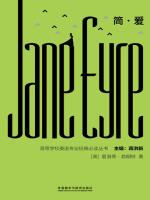Jane Eyre
Jane Eyre by Charlotte Bronte is one of the best books I have ever read. With a rural 19th-century England setting, Bronte has created a fictional account of the early life of Jane Eyre, which every reader can not help but enjoy.
In this novel, we get to recognize the conflicts between love and independence, conscience and passion, and the struggle of a young girl and woman to maintain her self-esteem. These were all pioneering themes in the patriarchal society of Victorian England in the 1800s.
For this article, I will first give a brief biography of Charlotte Bronte, and then give a sketch of the setting, characters, and plot of Jane Eyre, before concluding by commenting on the strengths and weaknesses of the novel.
Charlotte Bronte was an English novelist and poet, and the eldest of three Bronte sisters who were all writers. Born in Thornton, Yorkshire, in 1816, Charlotte's father was an Irish Anglican clergyman. After Charlotte's mother died of cancer in 1821, the clergyman and also father had no time to care for his daughters. Therefore, in August of 1824, he sent Charlotte with her two sisters to the Clergy Daughter's School at Cowan Bridge in Lancashire. This school became the basis for Lowood School in the novel Jane Eyre.
Bronte then continued her education at Roe Head in Mirfield from 1831 through 1832 and subsequently became a teacher there from 1835 until 1838. In 1839 Bronte accepted a position as a governess to families in Yorkshire. Her experiences of teaching and work as a governess are reflected a great deal in Jane Eyre. During the period 1843–1844, Charlotte attended a language school in Brussels, Belgium. While in Belgium, she fell in love with a married professor at the school. This life experience is strongly shown in Jane Eyre in the relationship between Jane and Mr. Rochester at Thornfield Hall.
In May of 1846, Charlotte and her younger sisters, Emily and Anne, self-financed a joint collection of poetry under the pen names of Currer Bell, Ellis Bell, and Acton Bell. These assumed pen names were all masculine because the Bronte sisters didn't want to declare their feminine nature since their mode of writing and thinking at the time wasn't politically correct for women.
Bronte's first novel, The Professor, was rejected by publishers in 1846, but in 1847, Jane Eyre: An Autobiography, was published in London by Smith, Elder, and Company. The first American edition was released in 1848 by Harper and Brothers in New York. Bronte published two other later novels, but they were not successful as Jane Eyre.
In 1854 Bronte married Arthur Nicholls, at one time assistant to her father. Unfortunately, in 1855 within one year of the marriage, Bronte died while still pregnant.
Throughout her life, Charlotte Bronte preached and practiced tolerance rather than revolution. She had high moral principles. Although she was shy in public, she was always prepared to argue her beliefs. All of these traits come through in Jane Eyre.
The main themes in the book are a conflict between love and independence, and a conflict between conscience and passion. Other themes are Jane's struggle to maintain self-esteem and social criticism.
The conflicts between love and independence and conscience and passion are brilliantly shown in the relationship between Jane and her master, Mr. Rochester, Jane knows it is morally wrong and against her conscience to love and seek marriage with Mr. Rochester, however, it is difficult to control her passion. Immediately after tearing herself away from her master, Jane says in the book: "Gentle reader, may you never feel what I then felt! May your eyes never shed such stormy, scalding, heart-wrung tears as poured from mine. May you never appeal to Heaven in prayers so hopeless and so agonized as in that hour left my lips: for never may you, like me, dread to be the instrument of evil to what you wholly love."
Jane's struggle to maintain self-esteem is seen primarily in Jane's relations with Mr. Rochester, her relationship with Mrs. Reed, and her relationship with Mr. Brocklehurst. The theme of social criticism is reflected in Jane's comments about the haughtiness of the gentry class towards subservient classes.
Jane Eyre has numerous strengths which have made it a classical piece of literature. These strong points include writing in the first person to get close to readers and a vivid portrayal of conscience versus passion. The descriptions of people and especially nature are excellent in this book, You definitely won't want to put this book down, because there are so many unexpected events in the plot. All human emotions such as happiness, sorrow, anger, fear, hate, and pity are also masterfully brought to life in this book.
Jane Eyre is a book that all people should read at some point in their lives. Considering all of the experiences portrayed in this book, Jane Eyre would probably be appreciated more by an older person who has experienced everything Jane has.




 京公网安备 11010802032529号
京公网安备 11010802032529号